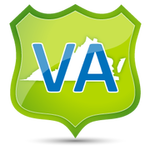Virginia Food Allergy Training Course
Virginia Food Allergy Training
Food allergy training could be the difference between life or death for a patron of your food service business. Food allergy training is designed to guide food service employees (management, cooks, and servers - FOH/BOH staff) in the best practices for safely serving food allergic guests.
Researchers estimate that up to 15 million Americans have food allergies, including 5.9 million children under age 18 - that’s 1 in 13 children. Moreover, about 30% of children with food allergies are allergic to more than one food. Source: Food Allergy Research & Education
The Food Allergen Labeling and Consumer Protection Act (FALCPA) identifies 8 foods or food groups as the major food allergens. They are milk, eggs, fish (e.g., bass, flounder, cod), crustacean shellfish (e.g., crab, lobster, shrimp), tree nuts (e.g., almonds, walnuts, pecans), peanuts, wheat, and soybeans. They account for 90% of all allergic reactions.
Food Handler Training
Virginia food handler safety training is for workers in the food service industry involved in the preparing, storing, and/or handling of food. The food handler safety training course outlines basic safe food sanitation and preparation principles and procedures used to maintain a food safe environment.
Certified Food Managers
Virginia food service establishments and businesses generally need to have a certified food manager (CFM). The Food Safety Manager Principles Course provides the necessary training for a food manager to prepare for the nationally-accredited ANSI Certification Exam. The ANSI Certification Exam certifies that a food manager has the knowledge required to manage a food safe environment.
Virginia Food Allergy & Safety Training Courses
- Food Allergy Training
- Food Handler Training
- Food Manager Training & ANSI Exam
Food Allergy Training
Course Description
The Food Allergy Training Course is designed to educate all restaurant and food service workers – from the server and hostess in the front of the house, to the manager and executive chef, to the line cook in the back of the house – about the severity of food allergies and the precautions that must be taken.
The training course will cover what is a food allergy, the different types of food allergens, how to identify symptoms of a food allergic reaction and what to do if a food allergic reaction occurs in a restaurant food service environment.
The course will also cover the best practices for restaurant employees to serve a food allergic customer including: the role of management, how to properly prepare an allergen safe meal for a food allergic customer, the front of the house and back of the house responsibilities.
Audience: Owners, managers, supervisors, food servers, chefs, cooks, mobile food vendors, bartenders, host/hostesses that handle food, bussers, caterers, and wait staff.
Credit Hours: 1 hr
Learning Objectives:
Upon completion of this course, student will be able to:
- Define a food allergy, including the top 8 food allergens and sources of each.
- Recognize the difference between a food allergy and food intolerance.
- Identify symptoms of a food allergic reaction.
- Describe the protocol for notifying emergency response if a food allergic reaction occurs.
- Discuss best practices for serving a food allergic customer, including the role of management, front of the house and back of the house employees.
- Describe how to properly prepare an allergen safe meal for a food allergic customer.
- Analyze a case study on how to properly serve a food allergic guest.
Course Topics:
Lesson 1: Overview of Food Allergens
Lesson 2: Allergy vs. Food Intolerance
Lesson 3: The Top 8 Allergens
Lesson 4: Importance of Allergen Control Plans in Commercial Food Service
Lesson 5: Recognizing Symptoms of an Allergic Reaction
Lesson 6: Facility Management: Handling Food Safely for Allergen Guests
Lesson 7: Communicating in a Restaurant: Management, FOH, BOH, and Service Staff
Lesson 8: Allergic Scenario: Customer Interaction
End of Course Test – Print Your Training Certificate
As soon as you complete the Food Allergy Training Course – you will then be required to take the End of Course Test.
With a minimum passing score of 70% on the test, you will be able to download and print your certificate of completion.
Individuals who do not pass the test on the first attempt will be allowed one additional attempt to review the course content and pass the test.
Food Handler Training
Course Description
The Food Handler Training course will cover basic food safety issues, regulations, and techniques needed to maintain a food-safe environment. It will help the learner better understand how handling food correctly is not only the law, but it improves safety and reduces risks.
At the conclusion of the course, the learner will be aseessed on their knowledge of the content.
Audience: Chefs, cooks, mobile food vendors, bartenders, host/hostesses that handle food, bussers, caterers, wait staff,servers, supervisors and managers, food warehouse staff, and convenience store (c-store) clerks.
ANSI Accredited Provider #0975Course Outline
- Identify biological, physical, and chemical contamination.
- Identify foodborne illnesses, signs of food spoilage, types of food prep contamination, and proper temperature control methods.
- Safely store and prepare meat, poultry, and vegetables.
- Demonstrate effective food handling techniques that promote cleanliness and safety in food establishments.
- Discuss the importance of proper personal hygiene in the workplace.
- Implement appropriate procedures to receive and store food.
- Summarize practices for properly cleaning and sanitizing food contact materials and surface.
Course Completion:
A certificate of completion will be issued to individuals who meet the following course requirement:
- Minimum seat time of 75 minutes
- Completion of the course and successfully passing the final exam with a minimum passing score of 75%
Individuals who do not pass the exam on the first attempt will be allowed one additional attempt to review the course content and pass the final exam
Food Safety Manager Training & ANSI Certification Exam
Course Description
The Certified Food Manager (CFM) Training Program accredits and licenses owners or managers of food facilities that supervise the preparation, handling, and/or serving of food.
- The Food Safety Manager Principles Course provides necessary training to help you prepare for the nationally-accredited ANSI Certification Exam.
- The ANSI Certification Exam is taken to certify that a food manager has demonstrated that he/she has the knowledge, skills and abilities required to maintaina afood safe environment.
- The Food Manager ANSI Certification is usually valid for 5 years. However, in a few local jurisdictions this may vary, so make sure to check with your local health authority.
Our Learn2Serve Food Protection Manager Certification is approved by the American National Standards Institute and the Conference for Food Protection (ANSI-CFP). This accredited exam is accepted in all states that have mandatory certification requirements for Food Management Professionals.
The exam will be proctored at a third party test center location.
Note: Except Texas - which is scheduled and taken entirely online.
Course Outline
- Lesson 1: Introduction to Food Safety
- Lesson 2: Biohazards, Foodborne Disease, and Food Spoilage
- Lesson 3: Contaminants
- Lesson 4: Food and Temperature Control
- Lesson 5: Employee Health, Hygiene, and Training
- Lesson 6: Purchasing, Receiving, and Storing Food
- Lesson 7: Cleaning and Sanitizing
- Lesson 8: Pest Control
- Lesson 9: Facility Design
- Lesson 10: HACCP System Basics
- Lesson 11: FDA Guidelines for Developing a HACCP System
- Lesson 12: Developing, Implementing, and Maintaining a HACCP Plan
- Lesson 13: Seafood HACCP
- Lesson 14: Consumer Steps to Safer Seafood
ANSI Certification Exam
To be certified as a food manager, the individual must pass an accredited food safety examination - administered by a certification provider.
The Learn2Serve Food Protection Manager Certification is approved by the American National Standards Institute and the Conference for Food Protection (ANSI-CFP). With the exception of Connecticut, this accredited exam is accepted in all states/jurisdictions that have mandatory certification requirements for Food Management Professionals.
Reference: ANSI (American National Standards Institute)
Help with Exam
We have partnered with PSI - a global testing, certification, and licensing provider. The exam is proctored at a PSI test center location.
After purchasing the exam, you should receive an email from PSI instructing you how to schedule your exam. If you do not receive this email, please contact support at 877.881.2235.
You can also click here to schedule exam online at a testing center near you.
Upon successful completion of the exam with a passing score, you may download and print a proof of completion document. The official certificate will be mailed within 15 business days of completing the exam.
Virginia General Food Safety State Requirements
Virginia food safety and sanitation are integral to operating a successful food service. The safety of our food supply is a responsibility shared by consumers, producers, sellers and handlers. The Center for Disease Control (CDC) estimates that because of foodborne illness 76 million people fall ill, 325,000 are hospitalized and 5,000 Americans die annually. Because of these alarming statistics, many states require certification of food managers which may include a food safety exam.
Why is food safety training and certification so important and why do states require it? The answer is very simple. Every consumer deserves and has the right to be served food that is safe to eat. Now you can help make food more safe and earn your state-approved Food Handler Training or Food Manager Certification entirely online anytime!
Virginia Food Safety Regulations:
- Virginia Department of Health – Food Safety
- Virginia Administrative Code – Title 12: Health – Agency 5: Department of Health – Chapter 421: Food Regulations
- Virginia Guide to Employee Health in Food Establishments (PDF)
Food Truck and Food Vendor:
- Virginia Local Health Districts
- Virginia Mobile Food Units (PDF)
- City of Arlington – Mobile Food Vending Units
- Fairfax County – Mobile Food Vending
- Chesapeake Health Department – Mobile Food Unit Operational Guide (PDF)
- City of Hampton – Mobile Food Units (PDF)
- City of Norfolk – Food Truck Vendor Program
- City of Alexandria -Food Trucks
- Richmond Food Truck Association
- Virginia Wine Festival – Food Trucks
- Washingtonian – Food Truck Ban Lifted – May 2015
- Virginia Beach – Peddler and Solicitor Information (PDF)
- Virginia Beach -An outdoor food truck park by Eat the Streets 757 has been granted a one-year conditional-use permit to operate at the Oceanfront.
- Virginia Beach Administrative Code – Chapter 26: Peddler and Solicitors
Virginia Food Safety Contact Info
Virginia Department of Health
Environmental Health – Food Safety
109 Governor Street
Richmond, Virginia 23219
Phone: (804) 864-7454
Web: http://www.vdh.virginia.gov/environmental-health/food-safety-in-virginia/
Major cities served: Virginia Beach, Norfolk, Chesapeake, Arlington, Richmond, Newport News, Alexandria, Hampton, Roanoke, Portsmouth, Suffolk, Lynchburg, and many more!
Virginia Food Safety Local Requirements




